Conservative Jurist Makes Impeachment Case, Belittles Trump Defenders
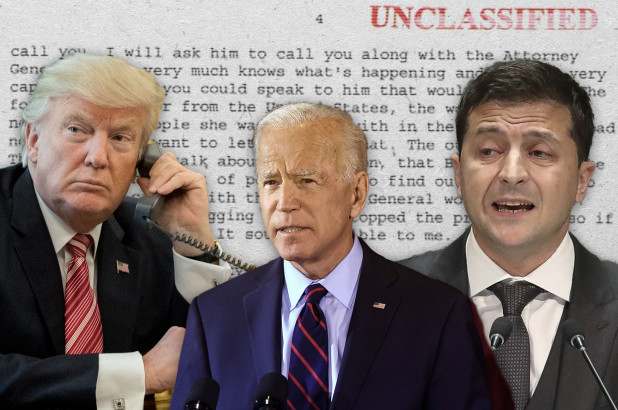
Judge Andrew Napolitano, Washington Times, Is ignorance of the Constitution Trump’s defense?

Extract/Summary: At this week’s public hearings on impeachment, we are seeing the case for and the case against impeaching President Donald Trump. The facts are largely undisputed, but each side has its own narrative.


The Democrats will argue that in his July 25, 2019, telephone call with his Ukrainian counterpart, seen in the context of months of negotiations between American and Ukrainian diplomats, Mr. Trump made it known that if the Ukrainian government wanted him to grant President Volodymyr Zelensky a White House visit and $391 million in military and financial aid that Congress authorized and ordered, it first must offer, or announce that it was seeking, dirt on his 2020 political opponent, former Vice President Joe Biden or his son, Hunter.

(Note: The White House visit and military aid allegedly were also contingent on Ukraine investigating a debunked conspiracy theory propagated by former New York Mayor Rudy Giuliani and other Trump supporters that Ukraine and not Russia interfered in the 2016 U.S. election and that a hacked Democratic National Committee computer server was being secretly held somewhere in Ukraine. Giuliani was Trump’s “point man” in an off-the-books diplomatic strategy to pressure Zelensky and Ukraine into making these concessions in return for a state visit and military aid. Giuliani’s two closest associates in this gambit were Igor Fruman and Lev Parnas, two Americans born in the former Soviet Union. Fruman and Parnas are already charged with crimes. Giuliani’s principal interlocutors in the US government, aside from President Trump, were Ambassador to the EU Gordon Sondland and special envoy to Ukraine Kurt Volker. Acting White House Chief of Staff Mick Mulvaney was a pivotal figure in this back-channel, parallel diplomacy to pressure Ukrainian President Zelensky.)

All of this makes a strong case that President Trump violated two federal statutes: One is the prohibition of solicitation of campaign help from a foreign government, and the other is the prohibition of bribery.

Federal election laws prohibit as criminal the mere solicitation of foreign help for a federal political campaign, whether the aid arrives or not. Federal law also prohibits and defines as bribery the intentional withholding or offering to withhold the performance of an official duty until a thing of value arrives, whether the thing of value arrives or not. Solicitation of foreign campaign assistance and bribery are the rare federal crimes that are defined by an attempt or an offer to commit them, even if they are never consummated.

All this is magnified, the Democrats argue, by the immediacy of Ukraine’s financial and military needs. Since 2014, Ukraine has been fighting a bloody war with Russia, resulting in the deaths of 13,000 Ukrainians. Note: Each week more Ukrainians die. The war in Ukraine seldom makes the news, but it is ongoing. Russia’s aggression against Ukraine continues.
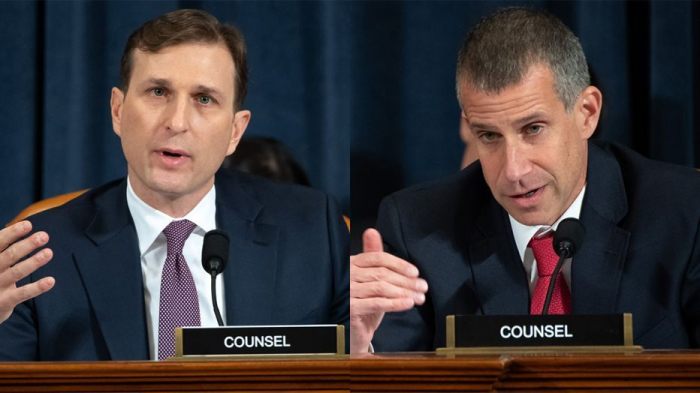
The Democrats also argue that Mr. Trump’s orders to executive branch employees to dishonor congressional subpoenas constitute the crime of obstruction of Congress. (Note: Judge Napolitano is saying that Trump is undermining the Constitutional authority of Congress to conduct oversight and to pursue an impeachment inquiry, an especially serious Constitutional breach, inasmuch as Trump’s alleged misbehavior has a direct impact on national security. To the extent that Trump’s actions constitute alleged crimes, he is also arguably obstructing justice.) These constitute two of the three permissible bases for impeachment.
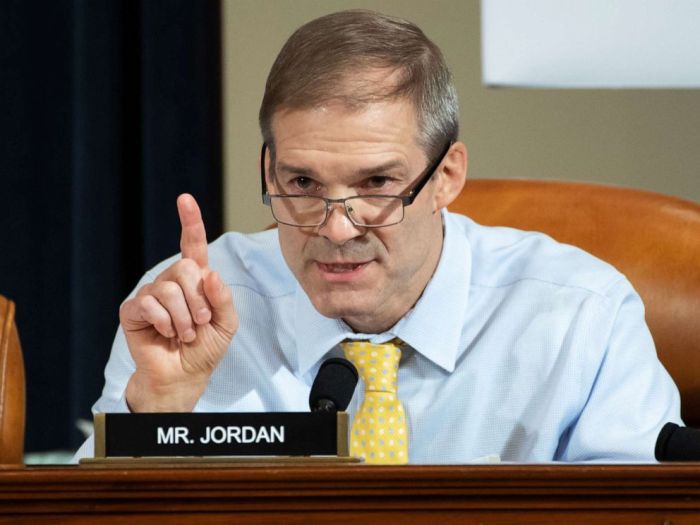
The Republicans are arguing that under the U.S. Constitution, the president — not Congress — sets the foreign policy of the nation. In foreign relations, the U.S. Supreme Court has ruled, Congress is limited to declaring war, appropriating funds, ratifying treaties and confirming ambassadors. All else foreign is presidential. Thus, whatever Mr. Trump wanted of the Ukrainian government, unless there is proof of criminal intent or an abuse of the president’s Constitutional authority, he was free to request whatever he wished. The Republicans argue that there is no evidence of criminal intent or an abuse of presidential power such as self-dealing or harming an ally or frustrating a congressional purpose.

(Note: Many Republicans are using what might be characterized as a “no-harm-no-foul” argument. The military aid was ultimately approved, and no investigation of Vice President Biden and son Hunter Biden resulted, let alone an investigation of the DNC server. Thus, they argue, there was no quid pro quo. However, the aid was approved only after the Whistle Blower accusations were made public and the President’s behind –the-scenes negotiations were publicly aired. One might say that the President was “caught in the act,” before he could successfully carry out his scheme. Other Republicans argue that thus far the Democrats’ have only gathered evidence based on second- and third-hand testimony. However, Trump, the White House counsel’s office and the Justice Department are seeking to prevent White House and executive branch officials from testifying. They are telling these individuals to ignore Congressional subpoenas. Former National Security Adviser John Bolton and Acting White House Chief of Staff Mick Mulvaney, for example, could give first hand testimony of Trump’s knowledge, state of mind, and guidance to diplomats and to Giuliani.)

Republicans also argue that the impeachment process is irretrievably compromised by the personal involvement, partisan advocacy and secretive methods of the chairman of the House Select Committee on Intelligence, Rep. Adam Schiff, California Democrat. From this, they argue that Mr. Schiff, and the evidence he developed, should be excluded from the proceedings. As well, to House Republicans, the crimes of illegal solicitation, bribery and obstruction of Congress require proof of Mr. Trump’s guilty state of mind, and such proofs are lacking.
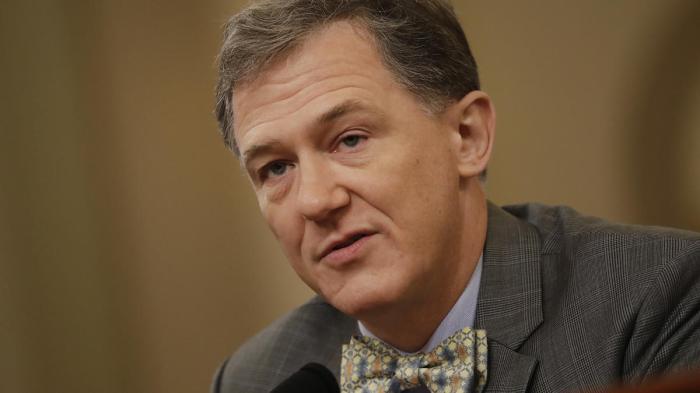
This is dangerously close to the Nixonian view of the American presidency — that the president can do no wrong. Of course, Republicans will not state this plainly, as the lessons of Watergate and Nixon’s resignation have soundly and universally repudiated that view.

Finally, Republicans argue that impeachment cheats democracy. Here they are correct. However, that is not an argument against impeachment. It is an argument against the Constitution as well as American legal and political history. James Madison — the scrivener of the Constitution — intentionally included anti-democratic features in the Constitution to preserve personal liberty from the tyranny of a congressional majority and the tyranny of a president’s subversion of the law and Constitution.

And the whole purpose of impeachment is to correct an election after the elected person has demonstrated that he is unfit for office.

Republicans also have accused the Democrats of denying President Trump due process under the law. However, the House is operating under rules adopted in 2015, when Republicans ran the House. Mr. Schiff is no more secretive about or partisan against the president than was then-Judiciary chair Peter Rodino toward Nixon during Watergate or then-Judiciary chair Henry Hyde was toward Bill Clinton during that impeachment crisis. Both acquired evidence from secret proceedings and both decided to impeach before any public hearings were held.
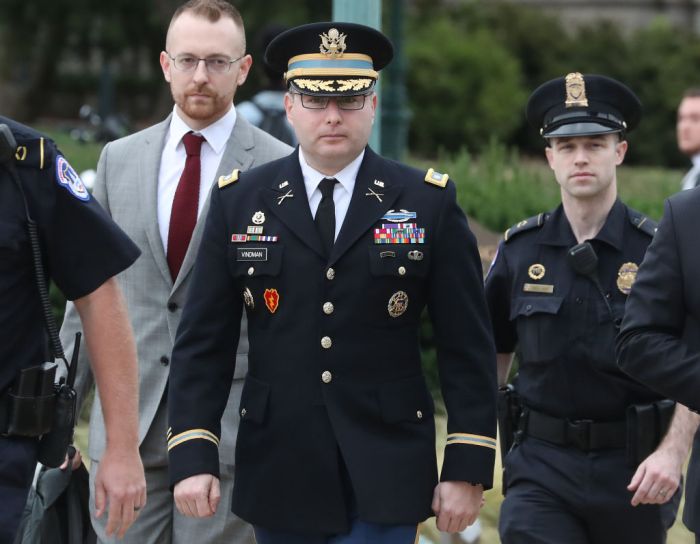
Note: Thus, Judge Andrew Napolitano argues that the Republicans’ defense of Trump relies on a willful ignorance of the US Constitution and US law. That Napolitano makes this argument is especially noteworthy, because he is a conservative Republican and a strict constructionist when it comes to the Constitution.
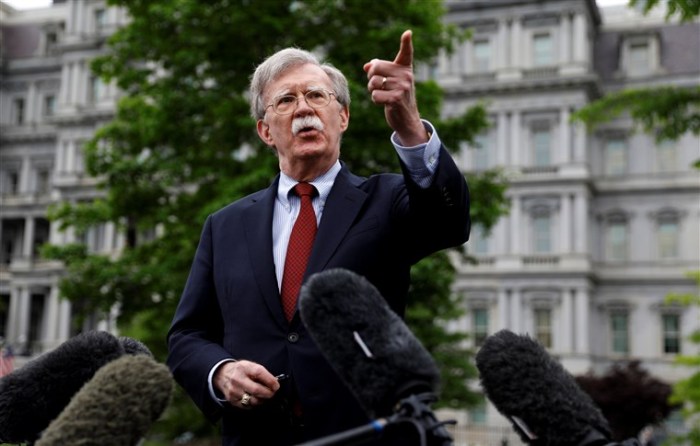
For more information, please click on the hyperlink below:
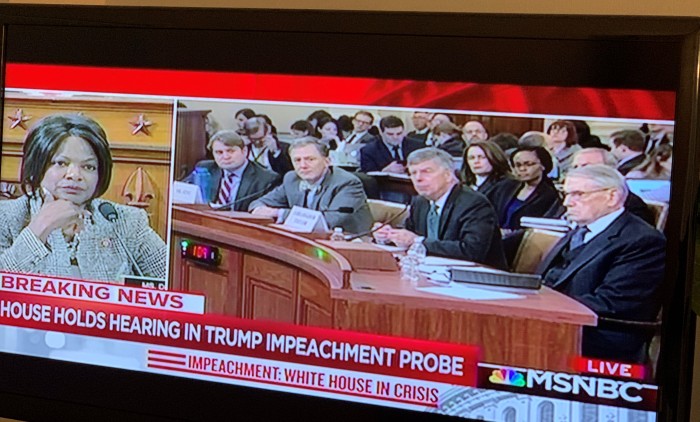
https://www.creators.com/read/judge-napolitano/11/19/is-ignorance-of-the-constitution-trumps-defense

